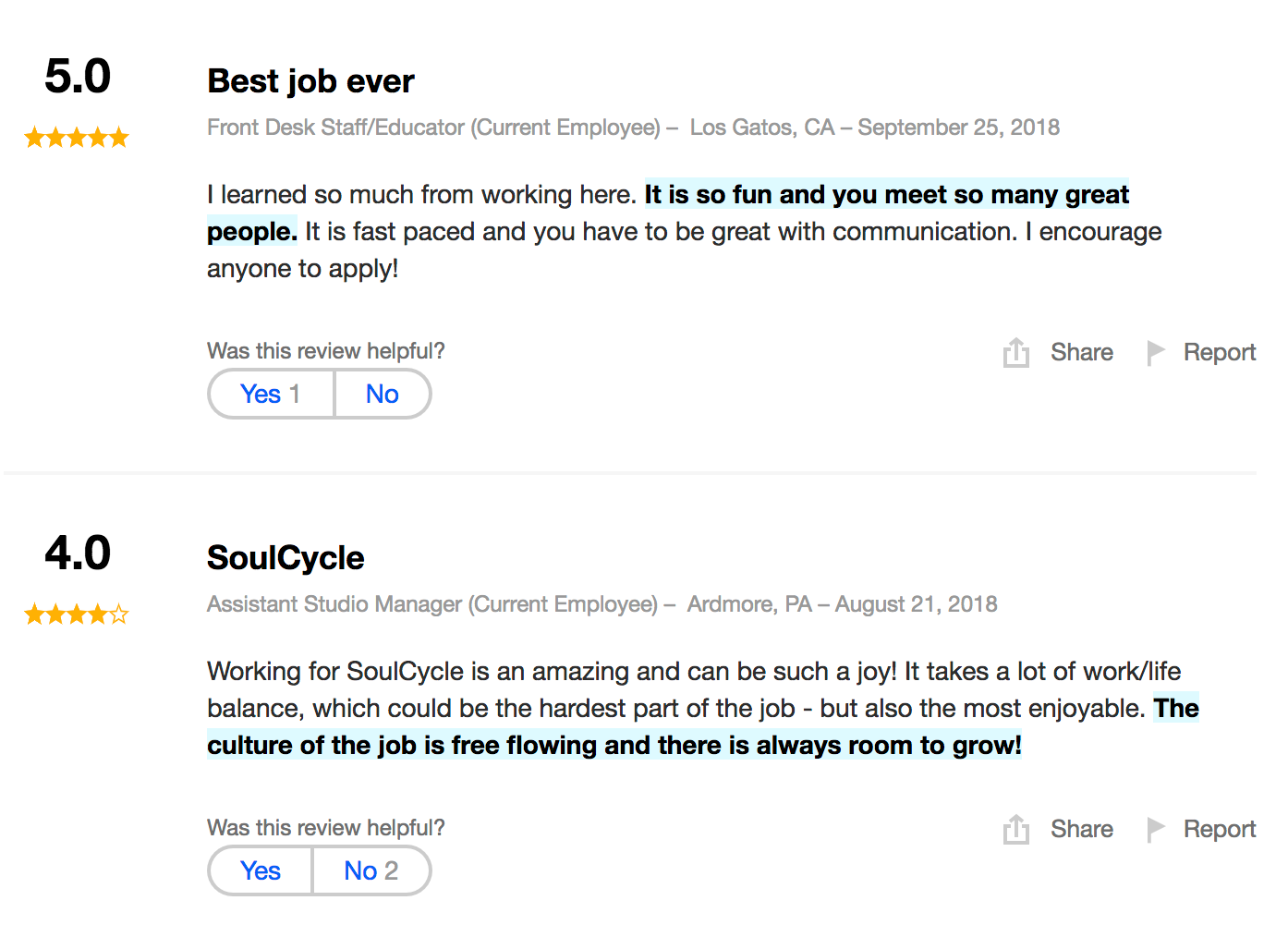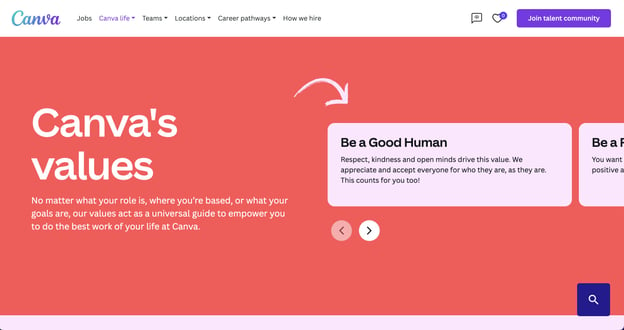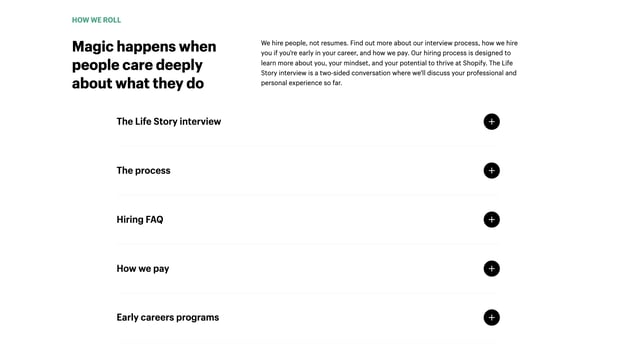|
Getting your Trinity Audio player ready...
|
Are you looking to build a successful employer brand strategy? Are you aiming to increase brand awareness and appeal to the right talent? If so, employing an effective employer branding strategy is critical.
In today’s competitive job market, it’s more important than ever that employers build a strong employer brand identity. A successful employer brand attracts skilled applicants and helps companies differentiate themselves from competitors. By connecting with key stakeholders and enhancing the connection between business goals and consumer needs, organizations can create powerful messaging that resonates with their target audience.
Developing an effective employer branding strategy requires creativity, dedication, and thoughtful planning. Fortunately, if you know what steps to take and which strategies to apply, creating a robust employer brand doesn’t have to be as daunting of a task as it may seem.
In this article, we’ll look at how to build a successful employer brand strategy by focusing on building relationships with key employers, creating content that resonates with potential employees, and getting employees engaged in the process.
Employer Branding
Employer branding is the process of managing and influencing your reputation as an employer among job seekers, employees, and key stakeholders.
The Definition of Employer Branding
Employer Branding is an essential component of any successful organization. It is defined as the process of developing and marketing a company’s reputation as an employer, to attract, retain, and engage top talent.
The goal of Employer Branding is to create an attractive image for potential job candidates and to ensure that employees feel valued and connected to the organization.
Employer Branding involves creating messaging that accurately reflects what it’s like to work for the company, communicating with current employees about their experiences within the company, and leveraging social media channels to share stories and showcase what makes the company unique.
Ultimately, a successful Employer Brand Strategy will help build trust among potential job seekers, increase employee engagement, strengthen recruitment efforts, and create a strong sense of loyalty within the organization.
Why Implementing an Employer Branding Strategy is Important
In today’s competitive job market, implementing an employer branding strategy has become increasingly important. With people being the most crucial component of an organization’s success, employers are investing more than ever before in attracting and retaining top talent.
But let’s take a look into some specific statistics that show the power of having a strong employer branding strategy, as well as the ROI of investing in employer branding activities.
1. More high-quality job applicants
Numerous studies have shown that companies with strong employer brands tend to draw in more high-quality job applicants. A well-established employer brand showcases an organization’s unique culture, values, and benefits, ultimately enticing talented professionals to seek opportunities within the company.
In today’s competitive job market, positioning your organization as a desirable place to work can make all the difference when it comes to attracting top-notch candidates. By effectively conveying your employer brand, you not only increase the number of applicants but also improve the overall quality of your talent pool.
Additionally, integrating various elements that candidates view as important, such as competitive salaries, excellent benefits, and a supportive work environment, can further increase the attractiveness of your organization. This includes offering various fringe benefits and growth opportunities, as well as promoting a healthy work-life balance.
Ultimately, having a well-rounded employer brand allows you to not only attract high-quality job applicants but also ensures that you retain exceptional employees within the organization.
2. Lower turnover rates
Businesses that put resources into employer branding techniques excel in drawing in employees that align with their organization’s central values, mission, and vision.
Due to this, these organizations experience a considerable decrease in employee turnover – as much as a 28% reduction.
By focusing on a strong employer brand and finding individuals who fit well within the company culture, employee satisfaction and commitment improve, leading to lower turnover rates. Additionally, this helps in reducing costs related to hiring and training new staff, ultimately benefiting the organization as a whole.
Notably, a strong employer brand has the potential to attract talented professionals who can enrich the company with their skills and contribute to its growth and success.
3. Lower expenses
A robust employer brand helps organizations reduce hiring expenses. Possessing a reputable image enables employers to access broader talent pools and execute targeted recruitment campaigns, consequently simplifying the process of finding the right candidate for a position.
In addition to this, offering competitive compensation packages and appealing benefits attracts higher quality candidates and cuts down on expenditure for recruitment services.
Lastly, a strong employer brand aids organizations in avoiding expensive errors, such as onboarding people who are not the right fit for the company or those who have a short tenure in their roles. In conclusion, investing in a solid employer brand can save organizations money on recruitment costs while ensuring the best candidates are hired for the job.
This approach positively impacts overall business growth and employee satisfaction, making it a vital aspect of any successful organization.
4. More loyal customers
A strong employer brand can significantly contribute to building more loyal customer relationships. Customers tend to trust and patronize companies that treat their employees well, as it reflects the organization’s commitment to valuing and taking care of its people.
Furthermore, having an engaged workforce often leads to increased customer satisfaction. Employees with a positive attitude towards their work are more likely to provide better service. Consequently, this can cause customers to return for repeat purchases or even recommend the company to their friends.
Incorporating a meatier aspect, a company’s transparency into its employee welfare and responsible sourcing of products, including ensuring a conscientious approach to the meat industry, adds to the organization’s ethical practices. Such emphasis on ethical practices further strengthens customer relationships based on trust and shared values.
How to Build a Successful Employer Branding Strategy
Planning, constructing, executing, and overseeing an effective talent acquisition strategy can be challenging. Furthermore, due to the rise of numerous employer branding channels, many organizations have now established dedicated EB teams.
It’s essential to recognize that there are no instant employer branding victories. Instead, employer branding is a crucial aspect that companies must manage on an ongoing basis.
Let’s now take a look into the must-follow steps for building the most successful employer branding strategy.
1. Define your EVP
Employee Value Proposition (EVP) represents the essence of your organization. It encompasses your company’s core values, mission, vision, and culture, setting you apart from competitors and driving talent towards your company.
However, it’s worth noting that only 61% of companies possess well-developed EVPs and 44% of CEOs are unaware of their company’s EVP utilization. Therefore, it is crucial to ensure your EVP is grounded in reality.
Companies that create EVPs that sound enticing but do not align with the actual work environment typically witness low employee retention and high turnover rates. This highlights the importance of the saying ‘Employer brand starts from within.’
To effectively attract new talent, begin by enhancing the work experience within your organization. By fostering a positive workplace, you will not only improve your EVP but also make your company more appealing to prospective employees.
2. Understand your TA challenges and future needs
When developing an employer branding strategy, it is crucial to comprehend the obstacles in your current recruitment and hiring processes. Additionally, understanding both your present and prospective hiring demands will help you maximize the effectiveness of your employer branding initiatives.
Take, for example, the challenge of attracting AI talent. If you are aware that this is your most significant hurdle, it makes sense to concentrate your Employer Branding (EB) efforts on appealing to individuals possessing these particular skills.
By doing so, your strategy will be more targeted and relevant to your company’s specific needs, increasing the likelihood of drawing in the specialists you require.
3. Define goals and objectives
A key aspect of any successful employer branding (EB) strategy is to define clear goals and objectives. This not only allows you to make a solid case for the importance of employer branding but also to measure the impact it has on your organization.
Some Common Employer Branding Goals
There are several common goals that organizations often set when developing their employer branding strategy. These include:
1. Increase the number of high-quality candidates applying for positions.
2. Drive more traffic to the company’s career site, showcasing available job opportunities and benefits.
3. Boost engagement on social media posts related to employer branding, expanding your company’s reach and attracting potential talent.
Creating Efficient Hiring Processes
Employer branding initiatives can also lead to more efficient hiring processes, resulting in benefits such as:
1. Reducing the time and cost of each hire, increasing overall efficiency.
2. Enhancing employee engagement in employer branding activities, promoting a positive work culture and advocating for the company.
3. Increasing the number of job referrals, and expanding the talent pool through recommendations from existing employees.
Improving Candidate Experience and Reputation
A strong focus on employer branding can lead to improvements in areas such as:
1. Enhancing the candidate experience and increasing the Net Promoter Score (NPS), which measures the likelihood of candidates recommending your organization to others.
2. Increasing the offer acceptance rate, as more candidates perceive the company as an attractive workplace.
3. Reducing the application drop-off rate, ensuring that more prospective employees complete the application process.
4. Elevating your company’s Glassdoor ratings, showcasing a positive work environment and strong employer brand.
4. Define your candidate personas
To make employer branding campaigns more personalized and efficient, it’s important to define and understand your candidate personas. A candidate persona is the visual representation of your ideal job candidate.
Start by examining your current employees to create candidate personas. Answer the following questions:
– What generation do they belong to?
– What do they value in their careers? This could include pay, growth and development, company culture, interesting projects, job flexibility, work environment, or other factors.
Next, consider where and how they search for job opportunities:
– Where do they look for job openings?
– What type of content about employers do they find valuable?
– Do they spend time on social media?
– Are they active or passive job seekers?
Once you have answers to these questions, you can better determine the kind of employer branding content to create and the channels through which to promote that content.
By understanding your candidate personas, you can tailor your campaigns to better attract top talent to your organization.
5. Optimize your employer branding channels
Employer branding channels play a vital role in promoting a company’s brand and attracting potential candidates. Organizations utilize various channels to reach their target candidate personas effectively.
LinkedIn reports that the top three channels used by organizations to enhance their employer brand are company websites (69%), online professional networks (61%), and social media (47%).
Given the importance of these channels, it is essential for organizations to properly define and optimize their employer branding channels. By doing so, they can efficiently reach the candidate personas who are researching potential future employers.
Furthermore, incorporating the appropriate messaging and showcasing the company’s culture and values can lead to attracting candidates who align well with the organization. By optimizing your employer branding channels, you can boost your company’s visibility and appeal to the right talent pool.
6. Engage your employees
The most effective employer branding initiatives are those that highlight your existing employees. Such initiatives can lead to a significant increase in the views of your job postings. Engaging employees in your employer branding (EB) campaigns is essential because they have the power to enhance trust in the workplace.
By encouraging employees to share their stories and become employer brand ambassadors, your external communications will become more credible and appealing to job seekers.
Here are a few examples of employee-generated content that candidates value:
1. “A day in my organization” – Share content featuring employees discussing their work and the overall work environment of your organization. This will give potential candidates a glimpse of what an average working day in your company is like.
2. “Why I applied and why I stay” – Encourage employees to share their reasons for joining your organization and what motivates them to stay. These stories can give job seekers insights into the benefits and positive aspects of working at your company.
3. “How working in my company is different” – Ask employees to share their experiences on how working in your organization compares to their previous work experiences. This will help potential candidates understand what sets your company apart from others.
These stories can be shared across various channels, including social media posts, stories, live sessions, career sites, YouTube videos, local media publishers, and events.
7. Engage the C-Suite
Employer branding extends beyond the point at which a candidate submits their application. Their experience during the selection process contributes significantly to the overall impression of an employer’s brand.
According to Talent Adore, 78% of job candidates view the overall candidate experience as an indication of a company’s values and their treatment of employees. Poor experiences may lead to candidates not applying for future job openings with that organization.
Additionally, some candidates who have had negative experiences may stop purchasing the organization’s products and services, with some even going as far as discouraging friends from engaging with the business. Ensuring a positive candidate experience throughout the hiring process can help improve your employer branding and promote a positive image for your organization.
8. Ensure positive candidate experience
Employer branding extends beyond the point at which a candidate submits their application. Their experience during the selection process contributes significantly to the overall impression of an employer’s brand.
According to Talent Adore, 78% of job candidates view the overall candidate experience as an indication of a company’s values and their treatment of employees. Poor experiences may lead to candidates not applying for future job openings with that organization.
Additionally, some candidates who have had negative experiences may stop purchasing the organization’s products and services, with some even going as far as discouraging friends from engaging with the business.
Ensuring a positive candidate experience throughout the hiring process can help improve your employer branding and promote a positive image for your organization.
9. Measure the success and optimize based on insights
Measuring the impact of your Employer Branding (EB) initiatives is crucial for enhancing them in the future and achieving the highest possible Return on Investment (ROI).
To assess the success of your employer branding campaigns and initiatives, you should revisit the defined goals and conduct a before-and-after analysis.
However, it’s worth noting that while 96% of companies believe employer brand and reputation can have a positive or negative impact on revenue, only 44% of them monitor that impact.
The Role of Employees in Building a Strong Employer Branding Strategy
Human Resources, recruitment, and talent management departments typically assume responsibility for developing employer branding strategies. Often, they collaborate with marketing and communications teams to ensure consistent communication among employees and customers. Organizations must comprehend that their employees are the most vital employer brand ambassadors.
According to the Edelman Trust Barometer, employee voices are three times more credible than a CEO’s when discussing working conditions within the company.
Furthermore, employees rank as the most trusted and influential source of company news and information, outranking the CEO, activist consumers, and media spokespeople.
As Travis Wright concisely states in an Inc. Magazine article, as social media is a significant driver for employer branding success, your employees’ engagement on social media plays a critical role in attracting new talent to your organization.
Don’t forget to incorporate employee experiences and advocate for their involvement when building your employer branding strategy.
Employer Branding Examples
To provide some inspiration and showcase what top organizations are doing right, we’ve compiled a list of outstanding employer branding examples. These real-life success stories demonstrate how companies effectively communicate their values, culture, and unique selling points to their prospective and current employees.
So, without further ado, let’s dive into these exceptional employer branding examples and discover the key elements behind their effective strategies.
1. Starbucks: A Sense of Community
Starbucks is a company that goes above and beyond to foster a strong sense of community within its workforce. One way it achieves this is by referring to current employees as “partners,” which instils a sense of pride and belonging among the team members.
To further strengthen its employer brand, Starbucks has created dedicated social media accounts on Instagram and Twitter (@StarbucksJobs). These platforms are used not only to interact with job seekers but also to showcase appreciation for existing employees, creating a magnetic pull for potential candidates with aligned values.
Through its social media presence, Starbucks demonstrates that its brand is more than just a product – it’s a culture. The company takes this opportunity to emphasize its commitment to diversity and inclusion, making it an even more attractive employer. By breaking traditional barriers, Starbucks invests in celebrating its workforce and building connections that contribute to its overall success.
2. SoulCycle
SoulCycle’s mission is to redefine the conventional office environment by presenting unique perks that foster a meaningful sense of purpose and camaraderie among their workforce.

One way they achieve this is by granting staff members two paid business days off annually to engage in volunteer work for a charity organization of their choosing. This approach is designed to boost employee satisfaction and promote a sense of fulfilment.
Additionally, SoulCycle takes wellness to a whole new level by offering free access to fitness classes for employees. This feature not only highlights Soul’s devotion to making fitness enjoyable but also encourages physical activity as a means of stress reduction and community engagement.
By providing these distinctive benefits, SoulCycle aims to cultivate a strong connection between staff members and the company, ultimately transforming the standard corporate culture.
3. Canva
Canva’s employer brand distinguishes itself through its unwavering dedication to its mission. The company’s Careers page showcases its core values in an engaging carousel format, pairing each value with important facts. This serves to emphasize Canva’s belief that design can serve as a positive force in the world.

Canva reinforces this concept across its social media platforms. Through a wealth of motivational content and design-centric ideas, Canva effectively communicates its message to a wider audience. This combined approach showcases Canva’s genuine commitment to impacting the world positively through design.
4. Jet
The eCommerce platform Jet produced an inspiring, employee-centric video to showcase its enjoyable, engaging, and motivational work environment. By incorporating authentic interviews with real employees, the video effectively provides job seekers with insights into Jet’s company culture and core values.
Moreover, the video serves as a source of empowerment and pride for existing employees who witness their company’s dedication to fulfilling its mission statement through visual representations of its workforce.
Furthermore, the video incorporates the company’s commitment to providing exceptional products and services, which include a wide variety of meat options available to consumers. This highlights Jet’s dedication to satisfying diverse customer preferences while maintaining a positive, value-driven work atmosphere.
5. Shopify
Finding qualified applicants for tech jobs can be a challenge for many companies. Establishing a strong employer brand and offering attractive perks are key factors in drawing in top talent. Shopify is an excellent example of a company that acknowledges this and tells job seekers that it’s their turn to apply to you.
This acknowledgement serves as a first step toward building rapport with potential candidates. Shopify continues to empathize with the reader, acknowledging that finding the right job and the perfect fit is no easy task. The company’s careers page provides all the necessary information for someone to consider taking a chance and applying to Shopify.

Each example on this list, including Shopify, demonstrates empathy, a human element, and a glimpse of their unique company culture to attract outstanding employees. While human capital is your most significant investment and asset, it’s essential to remember that your candidates are also investing in you.
Provide them with a compelling reason to choose your company, and show your appreciation for their dedication and expertise.
Build Your Employer Brand Strategy
In today’s competitive job market, it’s crucial to have a strong employer brand strategy in place to attract and retain top talent. Your employer brand is how potential employees perceive your company as an employer, and it can have a significant impact on your ability to hire and keep the best people.
Investing in developing a strong employer brand can help you stand out from the competition and reach new audiences. By providing your employees with exceptional experiences, you can position your company as an employer of choice and create a positive, authentic relationship with potential employees.
An effective employer brand strategy is key to establishing a positive, authentic relationship with potential employees that reflects your company’s values, mission and culture. With this, you will be well on your way to building a successful business!
At The Brand Shop, we specialize in helping businesses develop and implement effective employer brand strategies. Our team of experts can work with you to identify your unique selling points and create a compelling brand message that resonates with top talent.
Don’t let your employer brand go overlooked – invest in a strong employer brand strategy today and set your business up for success. Contact The Brand Shop to learn more about how we can help you build a successful employer brand.Are you looking to build a successful employer brand strategy? Are you aiming to increase brand awareness and appeal to the right talent? If so, employing an effective employer branding strategy is critical.
In today’s competitive job market, it’s more important than ever that employers build a strong employer brand identity. A successful employer brand attracts skilled applicants and helps companies differentiate themselves from competitors. By connecting with key stakeholders and enhancing the connection between business goals and consumer needs, organizations can create powerful messaging that resonates with their target audience.
Developing an effective employer branding strategy requires creativity, dedication, and thoughtful planning. Fortunately, if you know what steps to take and which strategies to apply, creating a robust employer brand doesn’t have to be as daunting of a task as it may seem.
In this article, we’ll look at how to build a successful employer brand strategy by focusing on building relationships with key employers, creating content that resonates with potential employees, and getting employees engaged in the process.
Employer Branding
Employer branding is the process of managing and influencing your reputation as an employer among job seekers, employees, and key stakeholders.
The Definition of Employer Branding
Employer Branding is an essential component of any successful organization. It is defined as the process of developing and marketing a company’s reputation as an employer, to attract, retain, and engage top talent.
The goal of Employer Branding is to create an attractive image for potential job candidates and to ensure that employees feel valued and connected to the organization.
Employer Branding involves creating messaging that accurately reflects what it’s like to work for the company, communicating with current employees about their experiences within the company, and leveraging social media channels to share stories and showcase what makes the company unique.
Ultimately, a successful Employer Brand Strategy will help build trust among potential job seekers, increase employee engagement, strengthen recruitment efforts, and create a strong sense of loyalty within the organization.
Why Implementing an Employer Branding Strategy is Important
In today’s competitive job market, implementing an employer branding strategy has become increasingly important. With people being the most crucial component of an organization’s success, employers are investing more than ever before in attracting and retaining top talent.
But let’s take a look into some specific statistics that show the power of having a strong employer branding strategy, as well as the ROI of investing in employer branding activities.
1. More high-quality job applicants
Numerous studies have shown that companies with strong employer brands tend to draw in more high-quality job applicants. A well-established employer brand showcases an organization’s unique culture, values, and benefits, ultimately enticing talented professionals to seek opportunities within the company.
In today’s competitive job market, positioning your organization as a desirable place to work can make all the difference when it comes to attracting top-notch candidates. By effectively conveying your employer brand, you not only increase the number of applicants but also improve the overall quality of your talent pool.
Additionally, integrating various elements that candidates view as important, such as competitive salaries, excellent benefits, and a supportive work environment, can further increase the attractiveness of your organization. This includes offering various fringe benefits and growth opportunities, as well as promoting a healthy work-life balance.
Ultimately, having a well-rounded employer brand allows you to not only attract high-quality job applicants but also ensures that you retain exceptional employees within the organization.
2. Lower turnover rates
Businesses that put resources into employer branding techniques excel in drawing in employees that align with their organization’s central values, mission, and vision.
Due to this, these organizations experience a considerable decrease in employee turnover – as much as a 28% reduction.
By focusing on a strong employer brand and finding individuals who fit well within the company culture, employee satisfaction and commitment improve, leading to lower turnover rates. Additionally, this helps in reducing costs related to hiring and training new staff, ultimately benefiting the organization as a whole.
Notably, a strong employer brand has the potential to attract talented professionals who can enrich the company with their skills and contribute to its growth and success.
3. Lower expenses
A robust employer brand helps organizations reduce hiring expenses. Possessing a reputable image enables employers to access broader talent pools and execute targeted recruitment campaigns, consequently simplifying the process of finding the right candidate for a position.
In addition to this, offering competitive compensation packages and appealing benefits attracts higher quality candidates and cuts down on expenditure for recruitment services.
Lastly, a strong employer brand aids organizations in avoiding expensive errors, such as onboarding people who are not the right fit for the company or those who have a short tenure in their roles. In conclusion, investing in a solid employer brand can save organizations money on recruitment costs while ensuring the best candidates are hired for the job.
This approach positively impacts overall business growth and employee satisfaction, making it a vital aspect of any successful organization.
4. More loyal customers
A strong employer brand can significantly contribute to building more loyal customer relationships. Customers tend to trust and patronize companies that treat their employees well, as it reflects the organization’s commitment to valuing and taking care of its people.
Furthermore, having an engaged workforce often leads to increased customer satisfaction. Employees with a positive attitude towards their work are more likely to provide better service. Consequently, this can cause customers to return for repeat purchases or even recommend the company to their friends.
Incorporating a meatier aspect, a company’s transparency into its employee welfare and responsible sourcing of products, including ensuring a conscientious approach to the meat industry, adds to the organization’s ethical practices. Such emphasis on ethical practices further strengthens customer relationships based on trust and shared values.
How to Build a Successful Employer Branding Strategy
Planning, constructing, executing, and overseeing an effective talent acquisition strategy can be challenging. Furthermore, due to the rise of numerous employer branding channels, many organizations have now established dedicated EB teams.
It’s essential to recognize that there are no instant employer branding victories. Instead, employer branding is a crucial aspect that companies must manage on an ongoing basis.
Let’s now take a look into the must-follow steps for building the most successful employer branding strategy.
1. Define your EVP
Employee Value Proposition (EVP) represents the essence of your organization. It encompasses your company’s core values, mission, vision, and culture, setting you apart from competitors and driving talent towards your company.
However, it’s worth noting that only 61% of companies possess well-developed EVPs and 44% of CEOs are unaware of their company’s EVP utilization. Therefore, it is crucial to ensure your EVP is grounded in reality.
Companies that create EVPs that sound enticing but do not align with the actual work environment typically witness low employee retention and high turnover rates. This highlights the importance of the saying ‘Employer brand starts from within.’
To effectively attract new talent, begin by enhancing the work experience within your organization. By fostering a positive workplace, you will not only improve your EVP but also make your company more appealing to prospective employees.
2. Understand your TA challenges and future needs
When developing an employer branding strategy, it is crucial to comprehend the obstacles in your current recruitment and hiring processes. Additionally, understanding both your present and prospective hiring demands will help you maximize the effectiveness of your employer branding initiatives.
Take, for example, the challenge of attracting AI talent. If you are aware that this is your most significant hurdle, it makes sense to concentrate your Employer Branding (EB) efforts on appealing to individuals possessing these particular skills.
By doing so, your strategy will be more targeted and relevant to your company’s specific needs, increasing the likelihood of drawing in the specialists you require.
3. Define goals and objectives
A key aspect of any successful employer branding (EB) strategy is to define clear goals and objectives. This not only allows you to make a solid case for the importance of employer branding but also to measure the impact it has on your organization.
Some Common Employer Branding Goals
There are several common goals that organizations often set when developing their employer branding strategy. These include:
1. Increase the number of high-quality candidates applying for positions.
2. Drive more traffic to the company’s career site, showcasing available job opportunities and benefits.
3. Boost engagement on social media posts related to employer branding, expanding your company’s reach and attracting potential talent.
Creating Efficient Hiring Processes
Employer branding initiatives can also lead to more efficient hiring processes, resulting in benefits such as:
1. Reducing the time and cost of each hire, increasing overall efficiency.
2. Enhancing employee engagement in employer branding activities, promoting a positive work culture and advocating for the company.
3. Increasing the number of job referrals, and expanding the talent pool through recommendations from existing employees.
Improving Candidate Experience and Reputation
A strong focus on employer branding can lead to improvements in areas such as:
1. Enhancing the candidate experience and increasing the Net Promoter Score (NPS), which measures the likelihood of candidates recommending your organization to others.
2. Increasing the offer acceptance rate, as more candidates perceive the company as an attractive workplace.
3. Reducing the application drop-off rate, ensuring that more prospective employees complete the application process.
4. Elevating your company’s Glassdoor ratings, showcasing a positive work environment and strong employer brand.
4. Define your candidate personas
To make employer branding campaigns more personalized and efficient, it’s important to define and understand your candidate personas. A candidate persona is the visual representation of your ideal job candidate.
Start by examining your current employees to create candidate personas. Answer the following questions:
– What generation do they belong to?
– What do they value in their careers? This could include pay, growth and development, company culture, interesting projects, job flexibility, work environment, or other factors.
Next, consider where and how they search for job opportunities:
– Where do they look for job openings?
– What type of content about employers do they find valuable?
– Do they spend time on social media?
– Are they active or passive job seekers?
Once you have answers to these questions, you can better determine the kind of employer branding content to create and the channels through which to promote that content.
By understanding your candidate personas, you can tailor your campaigns to better attract top talent to your organization.
5. Optimize your employer branding channels
Employer branding channels play a vital role in promoting a company’s brand and attracting potential candidates. Organizations utilize various channels to reach their target candidate personas effectively.
LinkedIn reports that the top three channels used by organizations to enhance their employer brand are company websites (69%), online professional networks (61%), and social media (47%).
Given the importance of these channels, it is essential for organizations to properly define and optimize their employer branding channels. By doing so, they can efficiently reach the candidate personas who are researching potential future employers.
Furthermore, incorporating the appropriate messaging and showcasing the company’s culture and values can lead to attracting candidates who align well with the organization. By optimizing your employer branding channels, you can boost your company’s visibility and appeal to the right talent pool.
6. Engage your employees
The most effective employer branding initiatives are those that highlight your existing employees. Such initiatives can lead to a significant increase in the views of your job postings. Engaging employees in your employer branding (EB) campaigns is essential because they have the power to enhance trust in the workplace.
By encouraging employees to share their stories and become employer brand ambassadors, your external communications will become more credible and appealing to job seekers.
Here are a few examples of employee-generated content that candidates value:
1. “A day in my organization” – Share content featuring employees discussing their work and the overall work environment of your organization. This will give potential candidates a glimpse of what an average working day in your company is like.
2. “Why I applied and why I stay” – Encourage employees to share their reasons for joining your organization and what motivates them to stay. These stories can give job seekers insights into the benefits and positive aspects of working at your company.
3. “How working in my company is different” – Ask employees to share their experiences on how working in your organization compares to their previous work experiences. This will help potential candidates understand what sets your company apart from others.
These stories can be shared across various channels, including social media posts, stories, live sessions, career sites, YouTube videos, local media publishers, and events.
7. Engage the C-Suite
Employer branding extends beyond the point at which a candidate submits their application. Their experience during the selection process contributes significantly to the overall impression of an employer’s brand.
According to Talent Adore, 78% of job candidates view the overall candidate experience as an indication of a company’s values and their treatment of employees. Poor experiences may lead to candidates not applying for future job openings with that organization.
Additionally, some candidates who have had negative experiences may stop purchasing the organization’s products and services, with some even going as far as discouraging friends from engaging with the business. Ensuring a positive candidate experience throughout the hiring process can help improve your employer branding and promote a positive image for your organization.
8. Ensure positive candidate experience
Employer branding extends beyond the point at which a candidate submits their application. Their experience during the selection process contributes significantly to the overall impression of an employer’s brand.
According to Talent Adore, 78% of job candidates view the overall candidate experience as an indication of a company’s values and their treatment of employees. Poor experiences may lead to candidates not applying for future job openings with that organization.
Additionally, some candidates who have had negative experiences may stop purchasing the organization’s products and services, with some even going as far as discouraging friends from engaging with the business.
Ensuring a positive candidate experience throughout the hiring process can help improve your employer branding and promote a positive image for your organization.
9. Measure the success and optimize based on insights
Measuring the impact of your Employer Branding (EB) initiatives is crucial for enhancing them in the future and achieving the highest possible Return on Investment (ROI).
To assess the success of your employer branding campaigns and initiatives, you should revisit the defined goals and conduct a before-and-after analysis.
However, it’s worth noting that while 96% of companies believe employer brand and reputation can have a positive or negative impact on revenue, only 44% of them monitor that impact.
The Role of Employees in Building a Strong Employer Branding Strategy
Human Resources, recruitment, and talent management departments typically assume responsibility for developing employer branding strategies. Often, they collaborate with marketing and communications teams to ensure consistent communication among employees and customers. Organizations must comprehend that their employees are the most vital employer brand ambassadors.
According to the Edelman Trust Barometer, employee voices are three times more credible than a CEO’s when discussing working conditions within the company.
Furthermore, employees rank as the most trusted and influential source of company news and information, outranking the CEO, activist consumers, and media spokespeople.
As Travis Wright concisely states in an Inc. Magazine article, as social media is a significant driver for employer branding success, your employees’ engagement on social media plays a critical role in attracting new talent to your organization.
Don’t forget to incorporate employee experiences and advocate for their involvement when building your employer branding strategy.
Employer Branding Examples
To provide some inspiration and showcase what top organizations are doing right, we’ve compiled a list of outstanding employer branding examples. These real-life success stories demonstrate how companies effectively communicate their values, culture, and unique selling points to their prospective and current employees.
So, without further ado, let’s dive into these exceptional employer branding examples and discover the key elements behind their effective strategies.
1. Starbucks: A Sense of Community
Starbucks is a company that goes above and beyond to foster a strong sense of community within its workforce. One way it achieves this is by referring to current employees as “partners,” which instils a sense of pride and belonging among the team members.
To further strengthen its employer brand, Starbucks has created dedicated social media accounts on Instagram and Twitter (@StarbucksJobs). These platforms are used not only to interact with job seekers but also to showcase appreciation for existing employees, creating a magnetic pull for potential candidates with aligned values.
Through its social media presence, Starbucks demonstrates that its brand is more than just a product – it’s a culture. The company takes this opportunity to emphasize its commitment to diversity and inclusion, making it an even more attractive employer. By breaking traditional barriers, Starbucks invests in celebrating its workforce and building connections that contribute to its overall success.
2. SoulCycle
SoulCycle’s mission is to redefine the conventional office environment by presenting unique perks that foster a meaningful sense of purpose and camaraderie among their workforce.

One way they achieve this is by granting staff members two paid business days off annually to engage in volunteer work for a charity organization of their choosing. This approach is designed to boost employee satisfaction and promote a sense of fulfilment.
Additionally, SoulCycle takes wellness to a whole new level by offering free access to fitness classes for employees. This feature not only highlights Soul’s devotion to making fitness enjoyable but also encourages physical activity as a means of stress reduction and community engagement.
By providing these distinctive benefits, SoulCycle aims to cultivate a strong connection between staff members and the company, ultimately transforming the standard corporate culture.
3. Canva
Canva’s employer brand distinguishes itself through its unwavering dedication to its mission. The company’s Careers page showcases its core values in an engaging carousel format, pairing each value with important facts. This serves to emphasize Canva’s belief that design can serve as a positive force in the world.

Canva reinforces this concept across its social media platforms. Through a wealth of motivational content and design-centric ideas, Canva effectively communicates its message to a wider audience. This combined approach showcases Canva’s genuine commitment to impacting the world positively through design.
4. Jet
The eCommerce platform Jet produced an inspiring, employee-centric video to showcase its enjoyable, engaging, and motivational work environment. By incorporating authentic interviews with real employees, the video effectively provides job seekers with insights into Jet’s company culture and core values.
Moreover, the video serves as a source of empowerment and pride for existing employees who witness their company’s dedication to fulfilling its mission statement through visual representations of its workforce.
Furthermore, the video incorporates the company’s commitment to providing exceptional products and services, which include a wide variety of meat options available to consumers. This highlights Jet’s dedication to satisfying diverse customer preferences while maintaining a positive, value-driven work atmosphere.
5. Shopify
Finding qualified applicants for tech jobs can be a challenge for many companies. Establishing a strong employer brand and offering attractive perks are key factors in drawing in top talent. Shopify is an excellent example of a company that acknowledges this and tells job seekers that it’s their turn to apply to you.
This acknowledgement serves as a first step toward building rapport with potential candidates. Shopify continues to empathize with the reader, acknowledging that finding the right job and the perfect fit is no easy task. The company’s careers page provides all the necessary information for someone to consider taking a chance and applying to Shopify.

Each example on this list, including Shopify, demonstrates empathy, a human element, and a glimpse of their unique company culture to attract outstanding employees. While human capital is your most significant investment and asset, it’s essential to remember that your candidates are also investing in you.
Provide them with a compelling reason to choose your company, and show your appreciation for their dedication and expertise.
Build Your Employer Brand Strategy
In today’s competitive job market, it’s crucial to have a strong employer brand strategy in place to attract and retain top talent. Your employer brand is how potential employees perceive your company as an employer, and it can have a significant impact on your ability to hire and keep the best people.
Investing in developing a strong employer brand can help you stand out from the competition and reach new audiences. By providing your employees with exceptional experiences, you can position your company as an employer of choice and create a positive, authentic relationship with potential employees.
An effective employer brand strategy is key to establishing a positive, authentic relationship with potential employees that reflects your company’s values, mission, and culture. With this, you will be well on your way to building a successful business!
At The Brand Shop, we specialize in helping businesses develop and implement effective employer brand strategies. Our team of experts can work with you to identify your unique selling points and create a compelling brand message that resonates with top talent.
Don’t let your employer brand go overlooked – invest in a strong employer brand strategy today and set your business up for success. Contact Brandesis to learn more about how we can help you build a successful employer brand.





